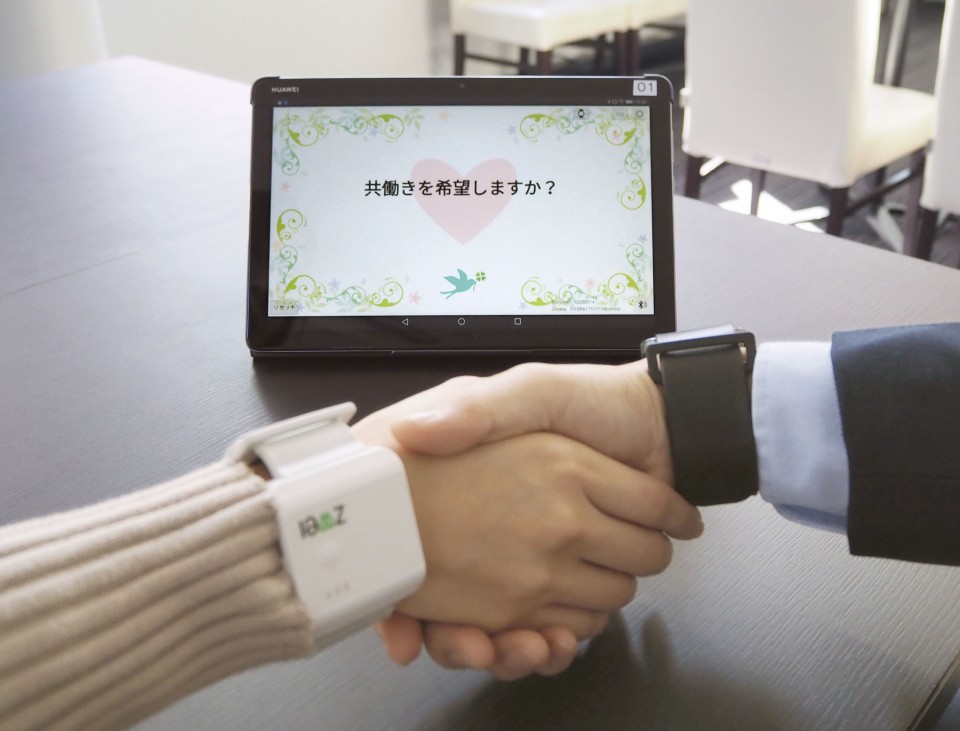AI Improves Spouse Hunting Success in Japan

Japan is famous for its technology. Unflatteringly, it’s also known for its “herbivores,” men who identify as heterosexual but are not interested in procreation and having their own families. Japan is a relatively rich country with access to some of the best tech, but it struggles to raise its population.
Things may change soon as artificial intelligence takes a special role in Japanese spouse hunting. AI is now being used as a matchmaker, and is reportedly increasing the “konkatsu” success rate.
AI at Spouse Hunting Parties
In June last year, matchmaking agency Zwei hosted a konkatsu or spouse hunting party that prominently featured tech items. The participants were asked to wear wristbands, and tablets were installed on the tables to enhance communication between potential partners.

When participants shook hands, the wristbands identify each other and show their respective information in the tablets or computers on the table. This setup is designed to make it easy for people to find something to talk about and initiate a conversation.
Spouse seekers were taking cues from the screen on what to ask the person in front of them. An example of the conversations that ensued with the help of the setup goes as follows: “Oh, I see you’re a movie enthusiast!” “Do you drink?” The tablet or computer screens also presented more cues to encourage more in-depth questions. For instance, one of the participants asked “What would you do if you received 1 million yen?” and “Do you want both spouses to make money? (dual household income)”
Intra-body Communication
Used in June by Zwei, the technology was dubbed as “intra-body communication.” It’s highlight feature is the commencing and stopping of communication with human contact (upon the shaking of hands). The participants of the June Zwei event experienced what it’s like to have artificial intelligence assisting a date. Almost all gave positive feedback.

A 47-year-old date searcher from the Kanagawa Prefecture noted how the system helped him get to know more about the ladies he interacted with. He acknowledged how difficult it is to ask questions to someone you have just met, and commended how the party was arranged because it allowed everyone to get a good sense of the mindset of their potential partners. In particular, it allows daters to ask questions that many would otherwise avoid, such as their potential partner’s mindset on money and work ethic.
Essentially, the role of artificial intelligence in the dating arrangement is to try to match people with their best possible partners not only through the information they share (by answering questionnaires). The AI system also enhances communication and tries to learn more about people by gathering information from their interactions.
How Does It Work?
The AI system behind “intra-body communication” was created by Partner Agent., a company that specializes in providing konkatsu support.
The system is designed to match daters by analyzing the answers they supply to a questionnaire with over a hundred questions. These questions include inquiries into past relationships and several other factors deemed important in determining compatibility.
So how does this make things different? It cuts matchmaking time significantly because it takes away the need for date seekers to personally meet potential marriage partners. It makes it unnecessary to wait for matchmaking staff to complete the arrangements needed for the meeting of potential partners. Most of the process can be completed online, through smartphones.
10% to 20% Success Improvement
Zwei claims that their AI-backed system has helped improve their matchmaking success rate by 10% to 20%. To emphasize, the percentage increases are based on the dates facilitated by the dating company. It does not represent the entire Japanese dating market, let alone the world’s.
However, the system is set to be tested on a larger scale. By January 2020, it will be introduced to Akita, the prefecture is famous for its “Akita bijin” (beauties of Akita). It seems, however, that beauty is not enough to create bring couples together in this side of Japan, as the prefecture is among those with the lowest marriage rates.
The Fukushima and Saitama prefectures have adopted comparable konkatsu systems, and they claim to have similarly improved their success rates.
One of the reasons why this AI-powered system is producing good results is the fact that it attracts more participants. Accordingly, younger Japanese are not keen on visiting matchmaking centers. That’s why there’s less likelihood for them to find their desired partners or for other daters to find them.
This technology-driven matchmaking system is backed by Japan’s local governments. It’s yet another testament to Japan’s role model status when it comes to creating and using technology to address real-life problems.